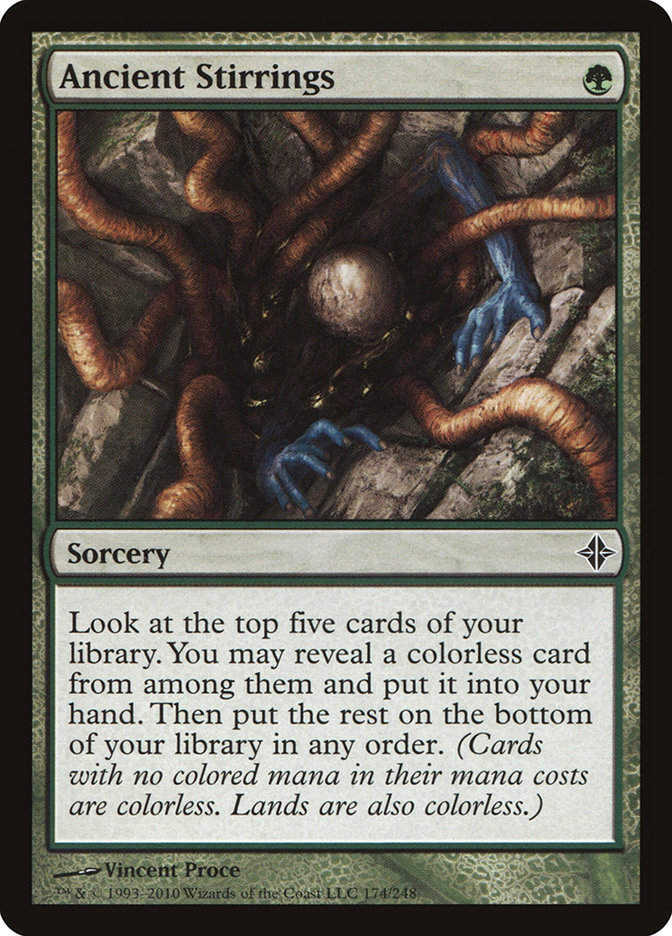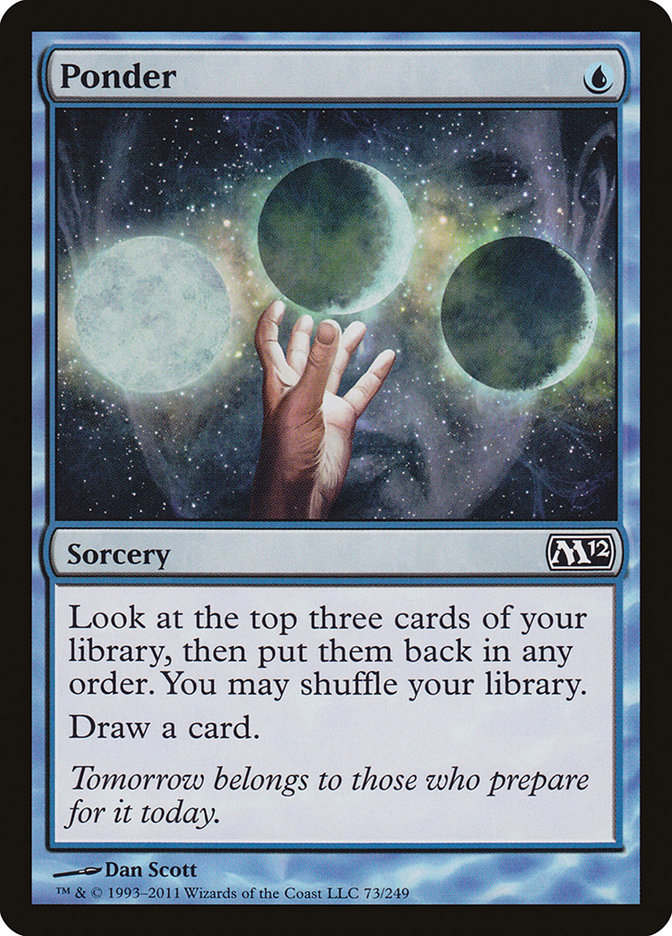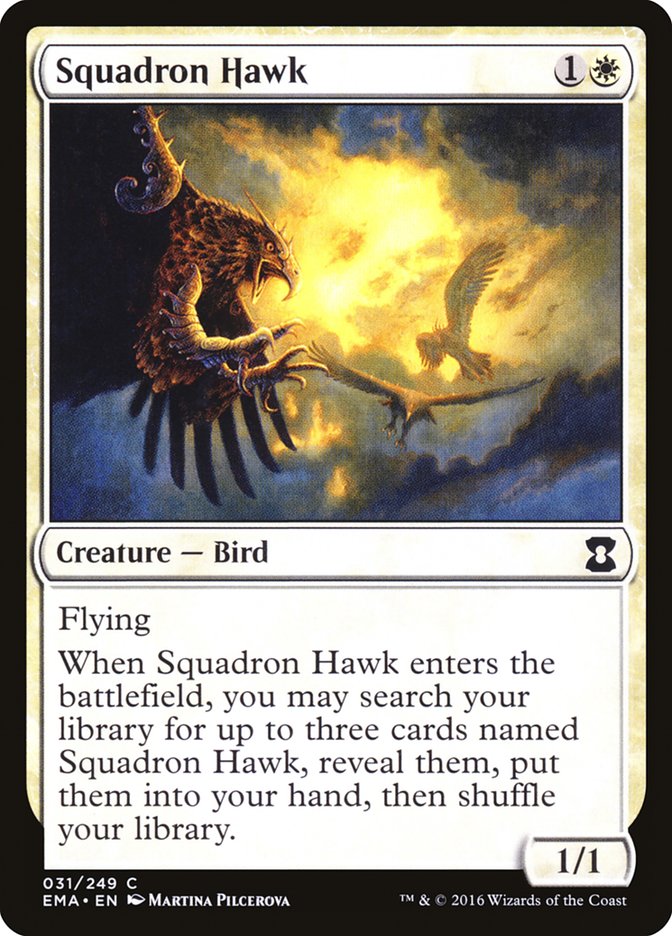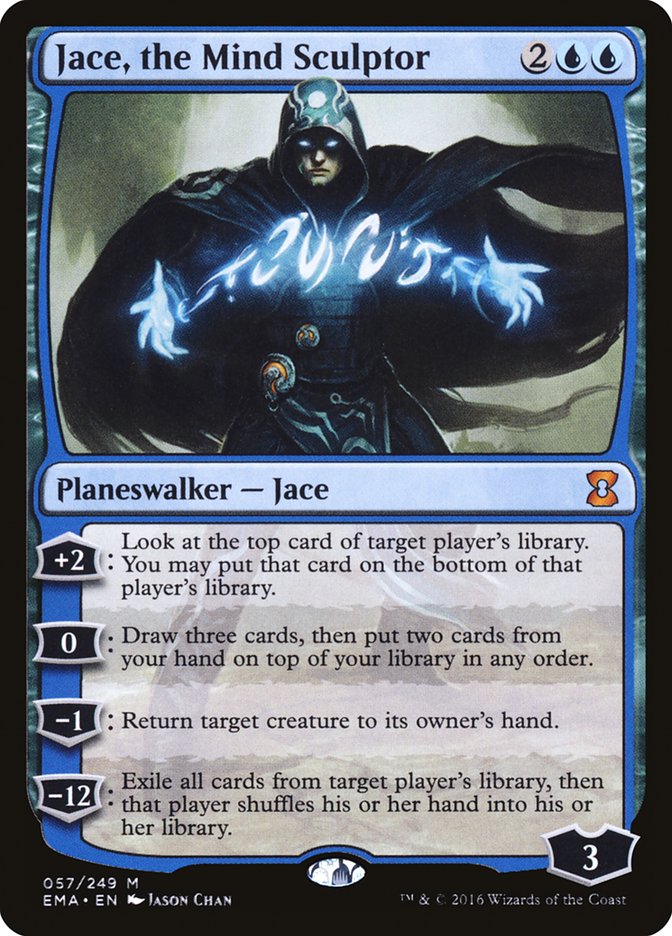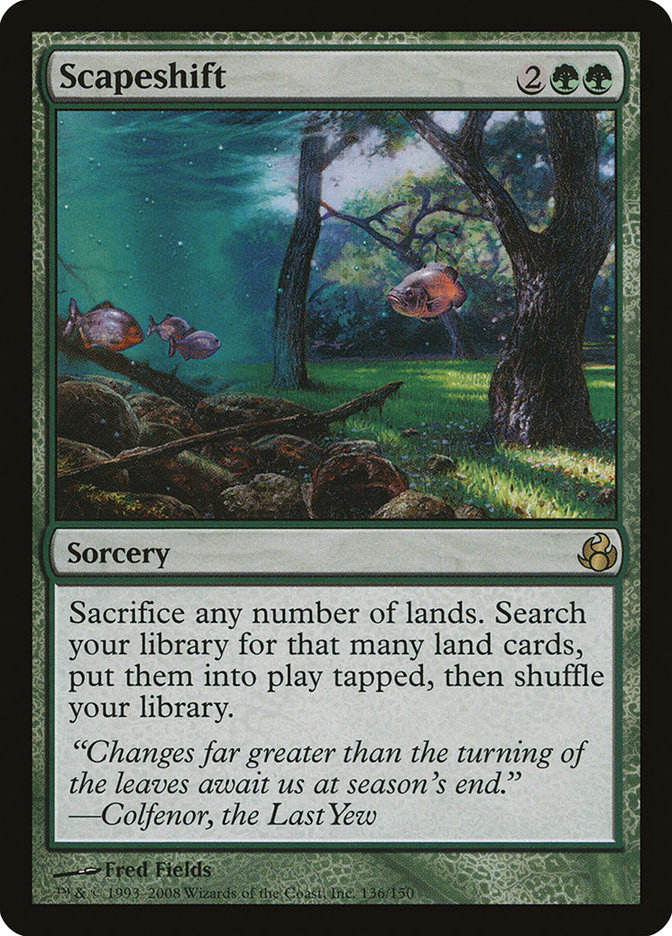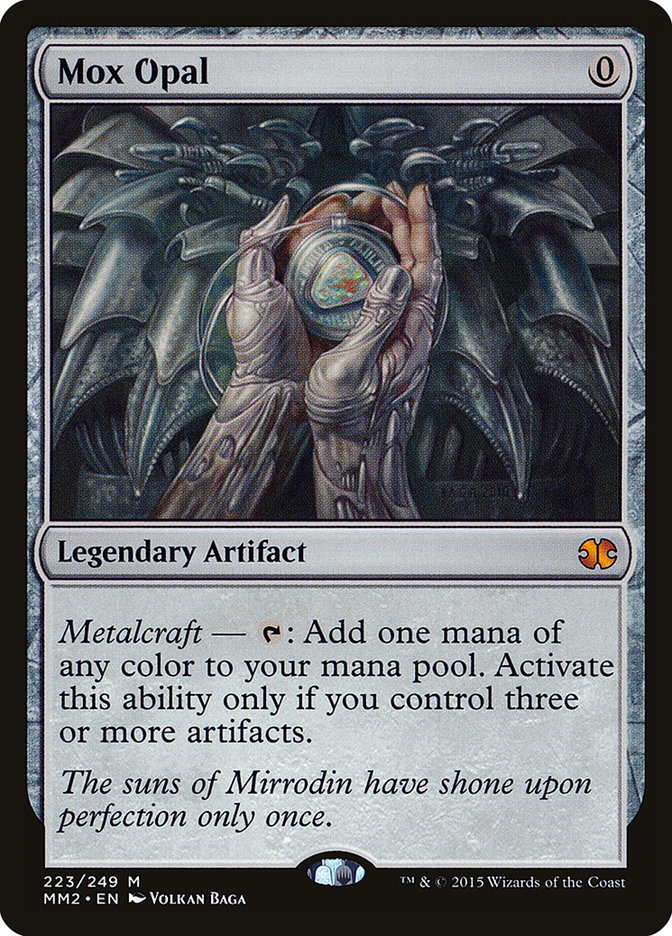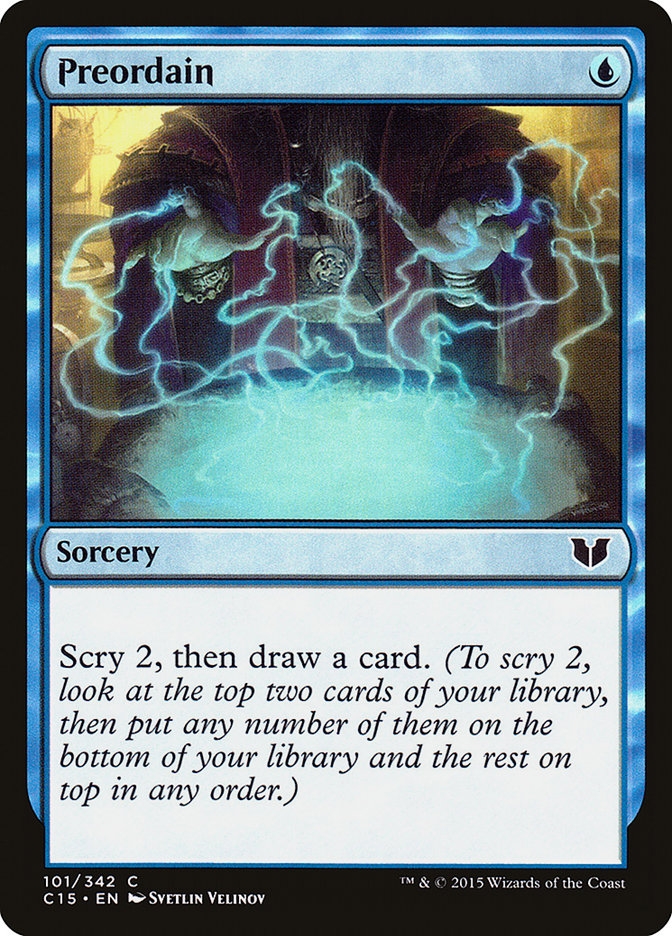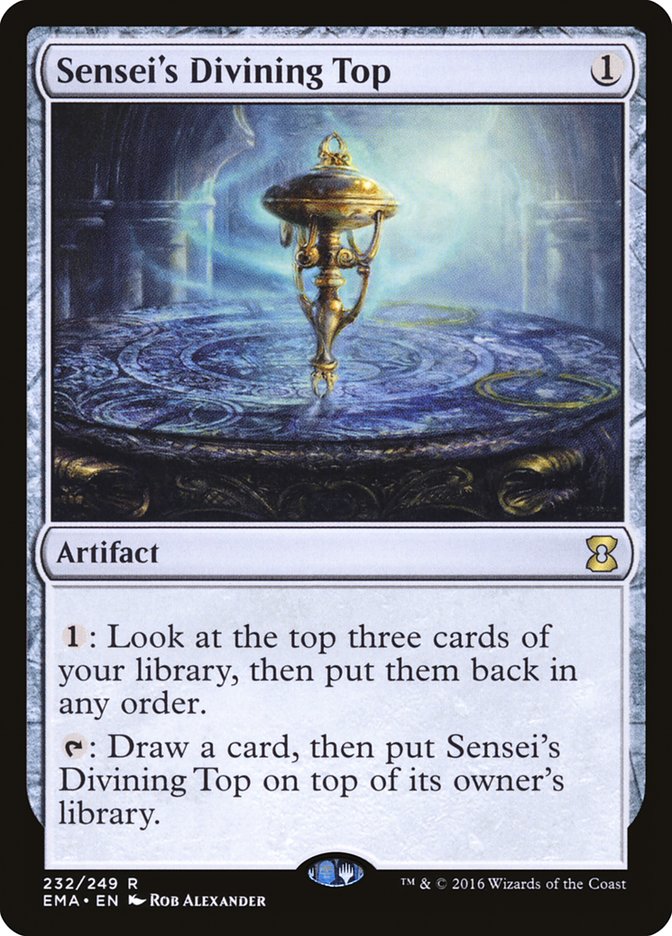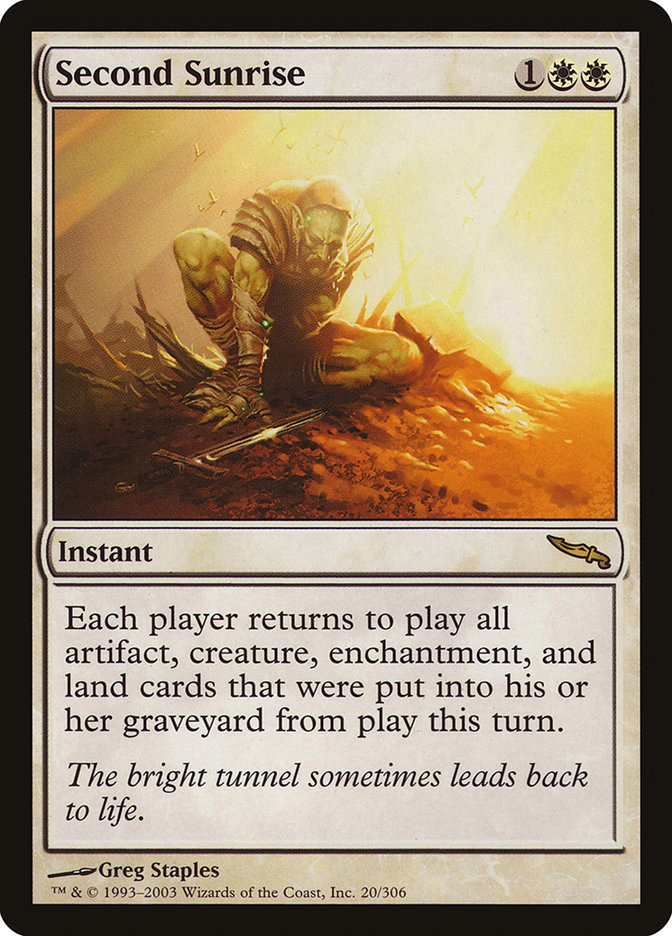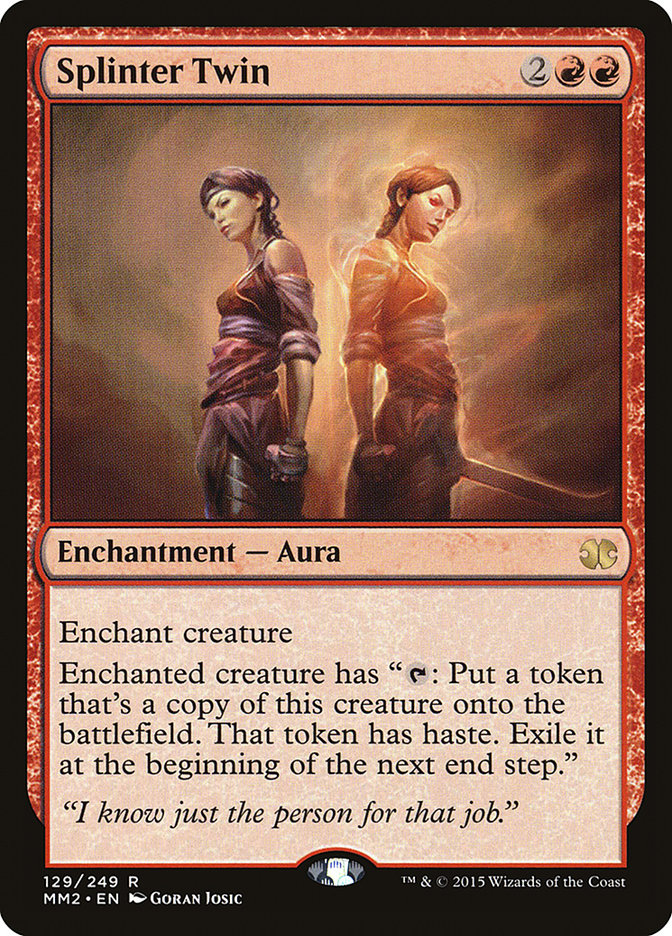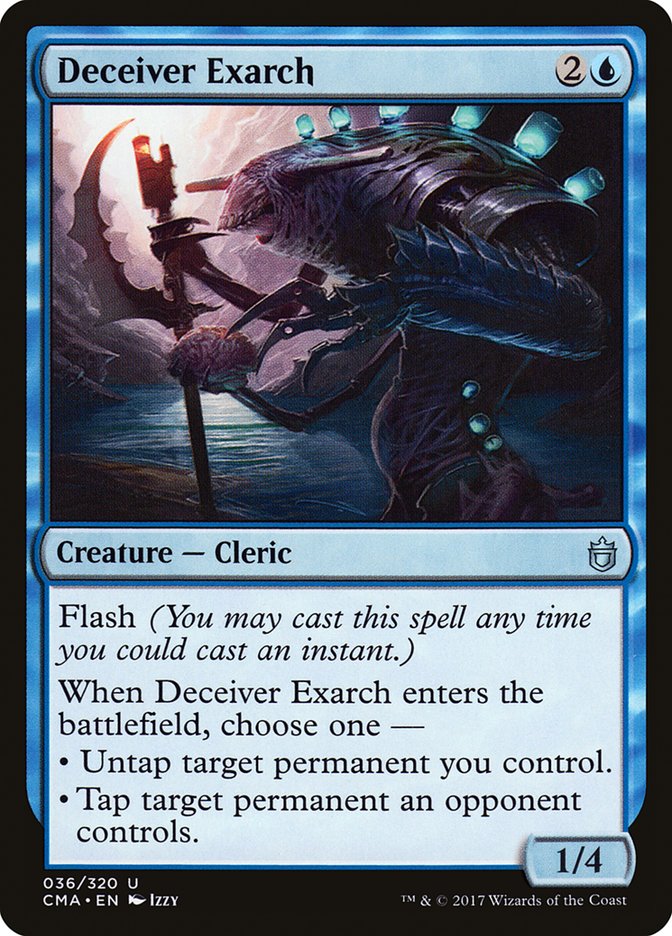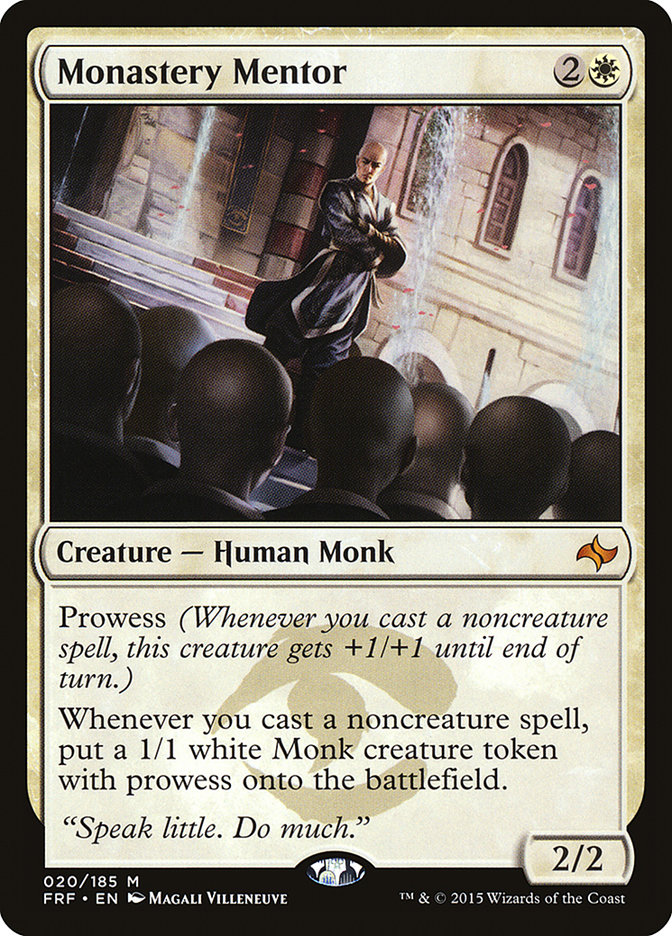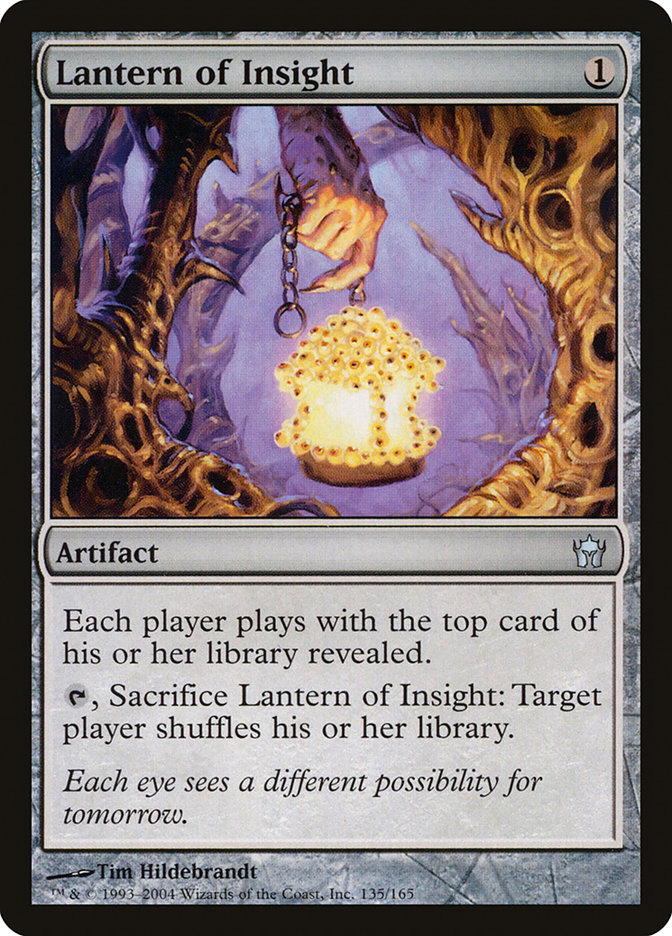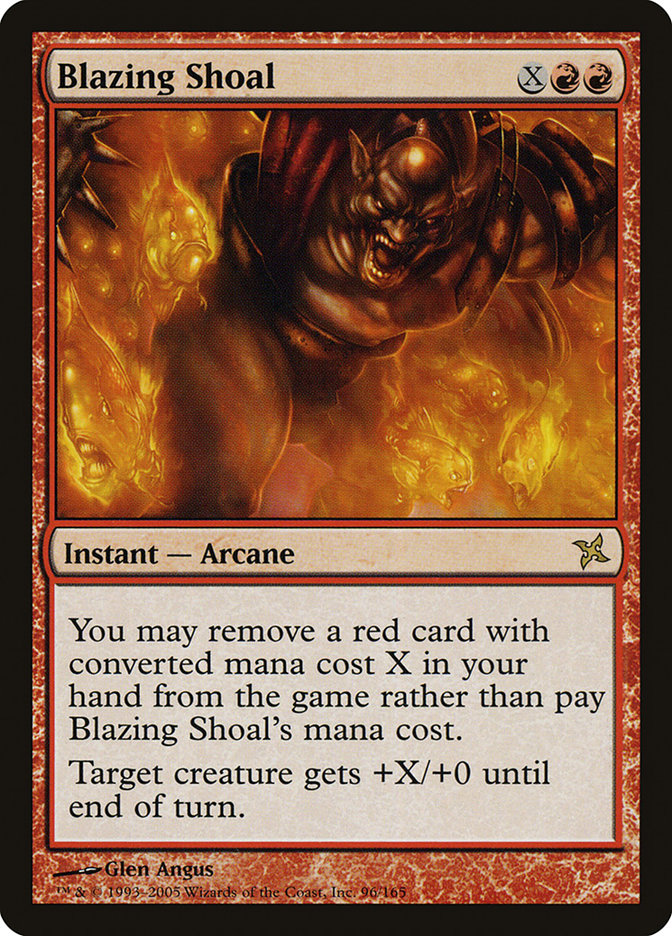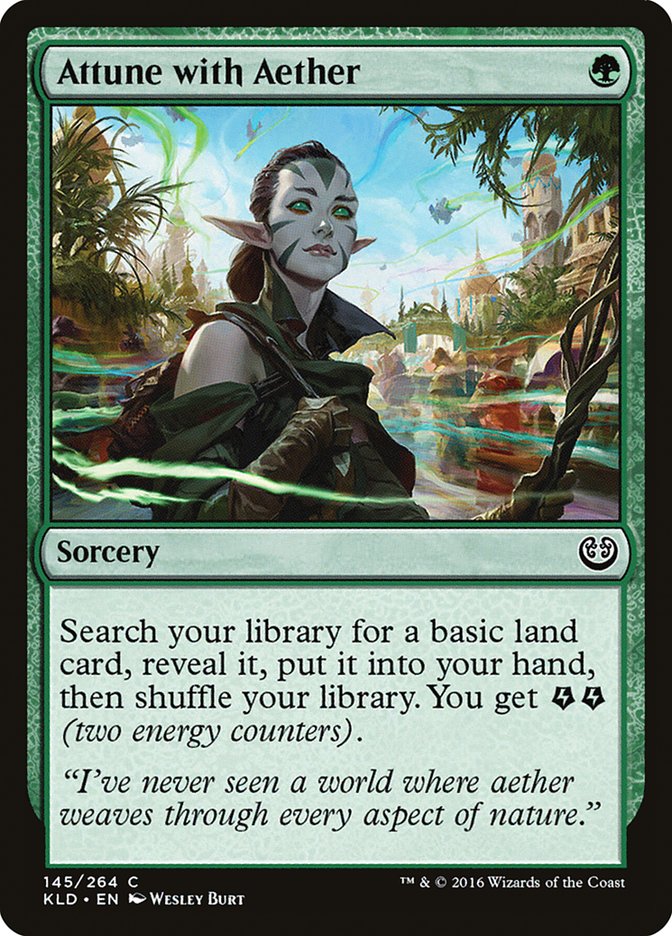I and others have been adamant recently about how much better the Modern format has been than in months and years past. The format is diverse, not only in quantity of decks, but also in the archetypes of those decks, leading to more interesting gameplay as well as a healthy, dynamic metagame. So going into the Modern Grand Prix in Oklahoma City last weekend, I was excited to see the format get a chance to shine on the professional circuit.
Creatures (6)
Planeswalkers (6)
Lands (17)
Spells (31)
- 2 Forest
- 4 Oblivion Stone
- 4 Sylvan Scrying
- 4 Chromatic Sphere
- 4 Chromatic Star
- 3 Relic of Progenitus
- 4 Expedition Map
- 4 Ancient Stirrings
- 2 Fatal Push
Sideboard

Creatures (9)
- 3 Wurmcoil Engine
- 2 Ulamog, the Ceaseless Hunger
- 1 World Breaker
- 1 Emrakul, the Promised End
- 2 Walking Ballista
Planeswalkers (6)
Lands (14)
Spells (31)

The results were…not great. Big mana decks dominated the tournament with Tron out in huge numbers, including three in the Top 8. Taking advantage of these Tron decks was TitanShift, which dominated the elimination rounds, taking both slots in the finals. Rounding out the Top 8 were two graveyard decks, the eternal bogeyman of Dredge alongside Living End, as well as a single copy of Jeskai Breach.
With the exception of Jeskai Breach, none of these decks are well-liked among the players. For most, these archetypes represent Modern at its worst: overpowered and non-interactive with a huge percentage of games that feel hopeless from the outset. The premier fair/interactive deck in the format, Grixis Death’s Shadow, was down in numbers, as were the various control decks that have been doing well recently.
In addition, one of the most hated decks in the format, Lantern Control, continued its rise after a strong showing at the Invitational in the hands of Sam Black and Brian Braun-Duin. Few people like playing a game for ten or more turns where every single relevant card in your deck is milled away while you draw brick after brick, and that’s the entire gameplan of the deck. At least the combo decks put you out of your misery and end the game quickly.
Amid all this disappointment, the ire of the community has fallen upon one card: Ancient Stirrings. It’s a critical piece in both Tron and Lantern decks to provide consistency at a rate that no other deck has access to. Looking at five cards for one mana is better than cards like Preordain or Ponder, which are on the Modern banned list and not coming off any time soon. Even more importantly, the colorless clause on Ancient Stirrings doesn’t restrict your ability to choose between a land or a spell, which is critical for the effectiveness of cantrips. If you can only choose one or the other, then the card is only relevant when that’s what you’re looking for, and versatility is what you’re paying for when casting a cantrip.
As a result, we have our latest head on the chopping block for a potential ban. Is it time to get rid of the green cantrip?
Short answer: No.
Long answer: You’d better get comfortable.
Why Are Cards Banned?
As far as I see, there are two primary reasons that a card will be banned. First, and far and away more prominent, is that the card enables a deck or decks that greatly inhibit the health of the metagame, leading to a significant drop in interest in the format. The Caw-Blade mirror may have been highly skill-intensive, but play it seven or more times in every tournament for months and it’s going to lose its luster.
Variety is one of the hallmarks of Magic, and one of the reasons the game has achieved the popularity it has. Coupled with that variety is a dynamism that other games struggle to replicate. Every three months a new set comes out and usually brings significant changes, and metagames change week to week, forcing you to tackle new challenges, tune your deck differently, and practice different matchups. When a deck threatens this constant change of pace by dominating the metagame, action must be taken to restore Magic to the dynamic game we all enjoy.
Are Any of the Ancient Stirrings Decks Too Good?
Tron has been around since 2012 and has never been particularly dominant. We were just in a metagame where fair decks were quite prominent and they were focused on hating out Storm as the top combo deck. I can’t imagine a better metagame for big mana decks, so naturally Tron and Scapeshift rose to the top. I can’t see the results in Oklahoma City being more than an aberration, and even if they aren’t, we certainly need more time and data to make a firm conclusion in support of a ban on power level grounds.
Lantern Control is even less popular than Tron, but it may be a better deck.
Whir of Invention is a big gain for a deck that needs to assemble a large variety of cheap artifacts to lock its opponent out of the game. The deck that once featured draft rejects like Ghoulcaller’s Bell has slowly and silently morphed into a well-oiled machine with big-name pros championing it. I expect the deck to become a staple at the top tables of Modern tournaments because it’s powerful and consistent, but we’re a long ways off from justifying a ban to nerf the deck.
But what about Ponder and Preordain? They’re banned and aren’t as efficient as Ancient Stirrings at digging through your deck, so why should it get a pass? Well, there’s more to the power level of a card than what it does at its maximum potential. Ponder and Preordain are too powerful in large part due to how easy it is to slot them into your deck and have it be a net positive change. With some obvious exceptions (heavy Chalice of the Void decks, for example), all you need is access to blue mana, and fetch-shock manabases ensure that’s easy to do.
In order to play Ancient Stirrings effectively, you need a deck almost entirely comprised of colorless cards and access to green mana. That’s a huge restriction placed on your deckbuilding, which is why we only see Ancient Stirrings in a few decks, whereas we saw Ponder and Preordain in tons of decks during their brief time in the format. Given this narrow range of playability, the only way to argue for the ban of Ancient Stirrings on power level grounds is to point to one of its decks as being too good, a point I’ve already grappled with.
The Unfun Argument
The second reason cards have been banned is that they have some highly negative impact on the tournament experience outside of winning too often, an accusation that is typically expressed as the deck being “unfun.”
The most prominent examples of this kind of ban are Sensei’s Divining Top in Legacy and Second Sunrise in Modern. Both disrupted tournaments, but not in the way that Ancient Stirrings decks do. The problem with them is the sheer time involved in operating the decks that they slotted into, Miracles and Eggs, respectively. Miracles simply took forever to win the game, especially if the pilot didn’t work through their Top activations efficiently, but the entire time you would be essentially helpless.
Eggs extended games by how long their combo turn would take. They had to tear through their entire deck one card at a time, deal two damage to you with a Pyrite Spellbomb, and then recycle their deck with Conjurer’s Bauble to do it again. Eventually the deck would be small enough that the cycles didn’t take too long, but getting to that point could easily take ten or more minutes, and if their first attempt failed, they’d have go for it again in a few turns. Tournaments were taking too long because of how this set-up took advantage of the “five extra turns” rule, leading to a ban even though the deck didn’t put up appreciably better numbers than other Tier 1 options at the time.
Tron doesn’t fit either of these molds. It’s simply a big mana deck that goes over the top of lots of decks in the format, which is exactly what big mana decks are designed to do. I know players don’t like playing non-interactive games of Magic, but there are tons of decks in Modern that are non-interactive and Wizards of the Coast is not going to ban all of them, nor should they. For some reason, Tron has drawn more ire than other such decks, even though it’s actually fairly interactive. It plays out like a control deck in lots of games, with cheap removal, sweepers, and powerful planeswalkers to take over the end game, except that the Tron lands let it accelerate to that end-game very quickly.
There is more potential to play fun, interactive games against Tron than there is against TitanShift or Storm, but Tron is often singled out as the worst offender. I think that’s mainly due to Tron’s longevity in the format. Everyone has stories of getting Turn 3 Karn Liberated or having your opponent topdeck the third Tron piece on the exact right turn, and they have enough of them that the deck has been permanently moved onto their enemies list. Other bogeymen like Storm or Dredge don’t have the same length of pedigree, so the bandwagon of hatred hasn’t had as much time to recruit members.
Splinter Twin was banned for being too good for too long, even if it was never over the top dominant, and perhaps you could ban Ancient Stirrings due to Tron being too unfun for too long, but that’s an unprecedented reason for a ban and opens up other conversations around Affinity and Burn, both of which can be similarly non-interactive and have been in the format for years.
It’s important to remember that banning cards is a last resort, and should not be done lightly. As much as many people hate Tron, there are plenty of people that enjoy it and play it and them losing out on their favorite or only deck is a huge loss for you to gain one or two more enjoyable rounds of Magic per tournament. More invested players are often more vocal in their hatred of specific decks because losing it as an option doesn’t affect them, but the rank and file are players who only own one or two decks, and much of the appeal of Modern is in being able to play a deck for years after you invest into it.
Lantern, however, has some legitimate issues here. Like Miracles, Lantern locks its opponent out of making relevant decisions for many turns before the game actually ends. Most opponents valiantly fight on, hoping for a near-impossible run of draws where the Lantern player can’t mill them all, but it never happens. It’s never going to happen. Just take the L and get something to eat.
But the gameplay leading up to the lock can be quite interesting, especially if you have some of the strange ways through the lock, like a zero-power creature with a way to pump it after attacking, sources of direct damage, or ways to cast relevant spells from the graveyard.
And is this really that different from playing against a typical control deck? There are plenty of games against Approach decks where you know you’re going to lose but fight on anyway and it takes them several turns to end the game. The question isn’t whether this kind of gameplay should be allowed; the questions is whether Lantern takes so long to tend the game that it affects tournament run times. I would say it isn’t.
Miracles took the bulk of its time, not in ending the game, but in getting to that point. Activating Sensei’s Divining Top from an even game state is very difficult with potentially hundreds of variables to take into account. Taking ten or maybe twenty seconds on that decision isn’t out of the question. When you do that on every turn, you’re adding five or more minutes to every single game. Lantern Control doesn’t have a similarly time-consuming decision to make during the relevant stages of the game, and as many pilots of the deck have noted, it doesn’t actually take too much time, should you practice appropriately with the deck.
To be honest, Miracles was in a similar spot until Monastery Mentor was printed and the deck became quite popular by Legacy standards, often eclipsing ten percent of the metagame. Once that happened, the outlier games and matches occurred more frequently during tournaments, and mirror matches, which do take quite a while, also happened more often. I mentioned earlier that I think Lantern Control is currently poised to rise in prominence in Modern, so it may find itself in the same position, but you don’t ban a card in anticipation of something that may or may not occur.
Also, if we do get to that point, the target for such a ban should not be Ancient Stirrings, since there’s no reason for Tron to suffer for the sins of Lantern, as much as many would celebrate as a result. If Lantern Control deserves a ban for being unfun, it should be a card that cuts only Lantern from the format, likely the namesake card: Lantern of Insight, which sees precisely zero play outside of the one deck.
I’ll be the first to admit that having Lantern of Insight on the Modern banned list would be a bit embarrassing (I sure hope that’s not the SCG Tour Modern playmat next year), but Blazing Shoal is there right now and we’re all still alive. Magic is a complicated game and sometimes objectively weak cards can be bannable in the right context.
The case for banning Ancient Stirrings just isn’t there. On every metric it’s just clearly below the threshold, or we have to wait and see if the results from Oklahoma City persist. I know Magic players like to complain, but come on. We’re in a Standard format where almost 70% of the Day 2 metagame is one deck and yet Modern is being targeted. Let’s tone it down, put some land destruction spells and Stony Silences in our sideboards, and work on taking out the card that’s truly overpowered: Lay of the Land.


